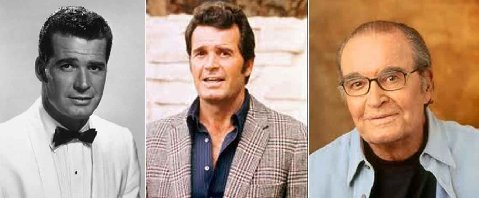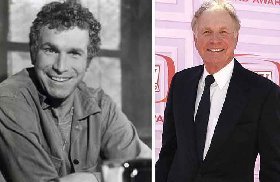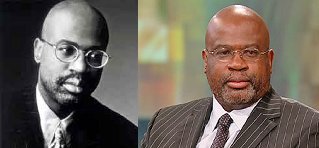Wisconsin (/wɪˈskɒnsɪn/ ⓘ wiss-KON-sin) is a state in the Upper Midwestern region of the United States. It borders Minnesota to the west, Iowa to the southwest, Illinois to the south, Lake Michigan to the east, Michigan to the northeast, and Lake Superior to the north. Wisconsin is the 25th-largest state by land area and the 20th-most populous.
The bulk of Wisconsin's population live in areas situated along the shores of Lake Michigan. The largest city, Milwaukee, anchors its largest metropolitan area, followed by Green Bay and Kenosha, the third- and fourth-most-populated Wisconsin cities, respectively. The state capital, Madison, is currently the second-most-populated and fastest-growing city in the state. Wisconsin is divided into 72 counties and as of the 2020 census had a population of nearly 5.9 million.
Wisconsin's geography is diverse, having been greatly impacted by glaciers during the Ice Age with the exception of the Driftless Area. The Northern Highland and Western Upland along with a part of the Central Plain occupy the western part of the state, with lowlands stretching to the shore of Lake Michigan. Wisconsin is third to Ontario and Michigan in the length of its Great Lakes coastline. The northern portion of the state is home to the Chequamegon-Nicolet National Forest. At the time of European contact, the area was inhabited by Algonquian and Siouan nations, and today it is home to eleven federally recognized tribes. During the 19th and early 20th centuries, many European settlers entered the state, most of whom emigrated from Germany and Scandinavia. Wisconsin remains a center of German American and Scandinavian American culture, particularly in respect to its cuisine, with foods such as bratwurst and kringle. Wisconsin is home to one UNESCO World Heritage Site, comprising two of the most significant buildings designed by Wisconsin-born architect Frank Lloyd Wright: his studio at Taliesin near Spring Green and his Jacobs I House in Madison.
The Republican Party was founded in Wisconsin in 1854. In more recent years, Wisconsin has been a battleground state in presidential elections, notably in 2016 and 2020.
Wisconsin is one of the nation's leading dairy producers and is known as "America's Dairyland"; it is particularly famous for its cheese. The state is also famous for its beer, particularly and historically in Milwaukee, most notably as the headquarters of the Miller Brewing Company. Wisconsin has some of the most permissive alcohol laws in the country and is well known for its drinking culture.[23][24] Its economy is dominated by manufacturing, healthcare, information technology, and agriculture—specifically dairy, cranberries, and ginseng. Tourism is also a major contributor to the state's economy. The gross domestic product in 2020 was $348 billion.
Etymology
The word Wisconsin originates from the name given to the Wisconsin River by one of the Algonquian-speaking Native American groups living in the region at the time of European colonization. The French explorer Jacques Marquette was the first European to reach the Wisconsin River, arriving in 1673 and calling the river Meskousing (likely ᒣᔅᑯᐤᓯᣙ meskowsin) in his journal.[29] Subsequent French writers changed the spelling from Meskousing to Ouisconsin, and over time this became the name for both the Wisconsin River and the surrounding lands. English speakers anglicized the spelling from Ouisconsin to Wisconsin when they began to arrive in large numbers during the early 19th century. The legislature of Wisconsin Territory made the current spelling official in 1845.
The Algonquian word for Wisconsin and its original meaning have both grown obscure. While interpretations vary, most implicate the river and the red sandstone that lines its banks. One leading theory holds that the name originated from the Miami word Meskonsing, meaning 'it lies red', a reference to the setting of the Wisconsin River as it flows through the reddish sandstone of the Wisconsin Dells. Other theories include claims that the name originated from one of a variety of Ojibwa words meaning 'red stone place', 'where the waters gather', or 'great rock'.
Wisconsin became a territorial possession of the United States in 1783 after the American Revolutionary War. In 1787, it became part of the Northwest Territory. As territorial boundaries subsequently developed, it was then part of Indiana Territory from 1800 to 1809, Illinois Territory from 1809 to 1818, and Michigan Territory from 1818 to 1836. However, the British remained in control until after the War of 1812, the outcome of which finally established an American presence in the area. Under American control, the economy of the territory shifted from fur trading to lead mining. The prospect of easy mineral wealth drew immigrants from throughout the U.S. and Europe to the lead deposits located at Mineral Point, Dodgeville, and nearby areas. Some miners found shelter in the holes they had dug, and earned the nickname "badgers", leading to Wisconsin's identity as the "Badger State". The sudden influx of white miners prompted tension with the local Native American population. The Winnebago War of 1827 and the Black Hawk War of 1832 culminated in the forced removal of Native Americans from most parts of the state.
Following these conflicts, Wisconsin Territory was created by an act of the United States Congress on April 20, 1836. By fall of that year, the best prairie groves of the counties surrounding what is now Milwaukee were occupied by farmers from the New England states.
Madison state capitol^
The growing population allowed Wisconsin to gain statehood on May 29, 1848, as the 30th state. Between 1840 and 1850, Wisconsin's non-Indian population had swollen from 31,000 to 305,000. More than a third of residents (110,500) were foreign born, including 38,000 Germans, 28,000 British immigrants from England, Scotland, and Wales, and 21,000 Irish. Another third (103,000) were Yankees from New England and western New York state. Only about 63,000 residents in 1850 had been born in Wisconsin.
If you want to read a whole lot more, go here: https://en.wikipedia.org/wiki/Wisconsin
In Florida, especially the southern and coastal areas of the state, smoked fish dip is a must-have at any get-together. It's a creamy dip that's made with smoked white fish, and it's pretty darn good. If you can't make it to Florida or you just want to make this favorite at home, our recipe for Florida Fish Dip will certainly please your taste buds.
- 1 (8-ounce) package cream cheese, softened
- 1/4 cup mayonnaise
- 1/2 cup diced red onion
- 1/2 cup chopped scallions
- 1/4 cup fresh lime juice
- 1/4 teaspoon crushed red pepper
- 1/4 teaspoon paprika
- 1 teaspoon white pepper
- 1 tablespoon chopped fresh dill
- 12 ounces smoked white fleshed fish, flaked
- In a medium bowl, with an electric mixer, combine cream cheese, mayonnaise, red onion, scallions, and lime juice.
- Stir in crushed red pepper, paprika, white pepper, and dill. Gently fold in fish until thoroughly combined. Refrigerate at least 8 hours or overnight. Serve chilled.
***We suggest serving this with some sliced jalapenos, lemon wedges, and crackers.
1954 – Jackie Chan, Chinese actor, director, producer, and martial artist
1956 – Christopher Darden, American lawyer, writer, and lecturer, prosecutor in O. J. Simpson murder case
1964 – Russell Crowe, New Zealand-Australian actor
Take a break from the sweeping, dusting, and dishes. Dirty windows? They will wait one more day. The vacuum will remain banished to the closet. And mopping? Well, tomorrow it’s a date.
While we don’t have to overlook the obvious necessary sanitary needs, we can leave a few dishes in the sink for the day. If the toys are scattered, leave them. Books cluttering the table? They can stay, too. Those chores you dread the most? Postponed for 24 hours. All general spring cleaning is delayed, too. Have closets been calling your name and begging, “Clean me!”? Ignore the voices. Do your cupboards need organizing? Hit the pause button on those, too.
All regularly scheduled housework resumes on April 8th.
HOW TO OBSERVE
- Leave the housework.
- Pick up a good book for the day.
- Play board games with the kids.
- Watch a good movie or two.
- Binge-watch a television series you’ve been saving to see.
- Play your favorite musical instrument.
NATIONAL NO HOUSEWORK DAY HISTORY
Thomas and Ruth Roy at Wellcat.com created National No Housework Day.












1 comment:
Betty White was a favorite of mine. Was sad when she passed in 21. She had an amazing life. I know you spend long time on your informative posts!! With my eye issues rarely post. Have a GREAT day!
Post a Comment